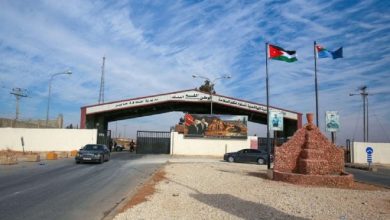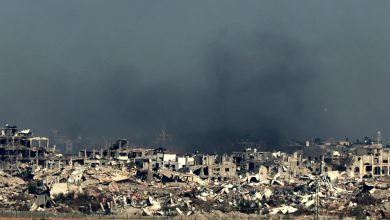Egypt’s Alleged Suez Canal Sell-off: Examining President el-Sisi’s Controversial Financial Scheme

Watan-Recently, Egyptian activists have shed light on a possible scheme by Egyptian President Abdel Fattah el-Sisi, allegedly supported by the UAE. Through this plan, el-Sisi is accused of intending to carry out what the late elected Egyptian President, Mohamed Morsi, had been charged with when el-Sisi was the Minister of Defense before the coup. Morsi was accused of planning to sell the Suez Canal along with the Muslim Brotherhood.
Activists assert that el-Sisi is currently preparing to burden Egypt with new debts by camouflaging the revenues of the Suez Canal. This implies his readiness to sell it by mortgaging its returns, thus giving decision-making authority over its policies to the holders of documents and bonds aimed at ensuring the canal’s revenues.
This alleged plan had been previously used to falsely accuse the late President Mohamed Morsi as part of a smear campaign within the framework of the coup, with the United Arab Emirates being a key supporter of the coup.
What is striking and noteworthy is the defense by Emirati media outlets aligned with the regime of Mohammed bin Zayed of this camouflage plan. They not only defend it but also attack those who object to it, labeling them as “supporters of the Muslim Brotherhood.”
The Arabic text discusses the concept of “securitizing” the returns of the Suez Canal
Securitization is a financial process where bonds are issued, representing the value of assets that generate returns. These bonds are then sold to investors.
Economic expert and former minister Ziad Bahaa Eldin expressed concern about the idea of seeking loans backed by the returns of the Suez Canal, considering it a risky proposition.
Under securitization, the government borrows by issuing international bonds, in exchange for relinquishing a portion of the returns from the Suez Canal for several upcoming years. This allows for an immediate large sum, which can be used to repay current debts in exchange for sacrificing a portion of the canal’s returns for the agreed-upon years.
Activists have indicated that there are official confirmations suggesting that the Sisi government is considering this approach starting in 2024, amidst a severe economic crisis faced by Egypt.
Sisi’s plan to drown Egypt in debt
The text discusses President Sisi’s plan to increase Egypt’s foreign exchange reserves to around $300 billion by 2030 through various methods. According to Osama El-Juhari, the head of the Information and Decision Support Center at the Cabinet, one of these methods involves “securitizing” 20-25% of the state’s dollar revenues.
This information is outlined in a document released by Sisi’s Cabinet titled “Key Strategic Trends for the Egyptian Economy Over the Next Six Years,” issued last Saturday.
El-Juhari explained that the document identified a specific margin when considering the securitization process to ensure the sustainability of the economy. However, he did not explicitly state whether there is a plan in the document to securitize 20-25% of the revenues from the Suez Canal.
The document emphasizes the need to examine the securitization of various foreign exchange revenues for the state. There are differing opinions on the securitization process, with some considering it a red line that should not be approached, while others see it as a solution to address the current pressing crisis.
🛑 توريق عوائد قناة السويس.. السيسي يعود لما اتهم به مرسي!
رغم الاتهامات الملفقة التي وجهتها الأذرع الإعلامية في مصر منذ استلام الرئيس محمد مرسي للسلطة، بأن “مرسي” والإخوان يعتزمون تطبيق توريق عوائد قناة السويس، ما اعتبرته الأذرع تهيئة لبيع القناة بشكل مقبول وذلك برهن عوائدها… pic.twitter.com/IFYOC1lb1u
— omar elfatairy (@OElfatairy) January 10, 2024
The economic expert Ziad Bahaa Eldin mentioned that the threat posed by external public debt to Egypt’s economic stability necessitates considering exceptional solutions. He added that if the issue of debt is not resolved through future revenues from the Suez Canal, what alternative exists to pay off the current debt installments soon?
Reasons for rejecting the dredging of the Suez Canal
Bahaa Eldin explained that people’s sentiments and their rejection of pledging the returns of the Suez Canal should be taken into consideration, along with other reasons that lead him to object to the securitization of the Suez Canal. Some of the reasons include:
- Such borrowing would relatively easily add hundreds of millions of dollars to Egypt’s already inflated external debt, which is concerning.
- Regardless of the intention to use the new loan only to repay current debts, a portion of it may find its way into other projects that do not yield quick returns, exacerbating the existing debt problem.
- There is a real and practical alternative to pledging the returns of the Suez Canal to repay external debt, which is a thorough economic reform. If implemented quickly, such reform could boost tourism revenue during the current year.
- This reform would add several billion to the foreign direct investment revenue, encourage more inflow of expatriate savings, contributing to foreign currency reserves. These reforms are necessary and must be considered sooner or later.
- There is a fear that relying on “securitization” as a relatively easy and quick source of funds to meet internal and external spending needs would expand and become a precedent. This could lead to securitizing future returns of other sources, such as customs, taxes, electricity and water bills, and other guaranteed payments later on, further spiraling public debt out of control.
- Borrowing with the guarantee of the returns of the Suez Canal means depriving the Egyptian treasury of a fundamental and continuous source of future foreign resources, which implies depriving future budgets of a stable source of foreign currency.
The UAE Wields its Influence Against Opponents of Dredging
Several Emirati media outlets have launched attacks against those who oppose the dredging process, labeling them as members of the Muslim Brotherhood, as described by the Emirati website “Al Ain,” according to observations by the (Watan) platform.
The website characterizes the dredging process as a “Brotherhood rumor,” despite the fact that the Muslim Brotherhood has not uttered a single word either during Morsi’s rule or after, or even before.
According to Egyptian journalist “Omar Elfatairy,” this points to a concealed Emirati agenda behind the assault on dredging opponents. Earlier reports in economic circles had discussed the UAE’s intention to lease the Suez Canal for the next 50 years.
Abu Dhabi seeks to inject $200 billion into Egypt in exchange, a claim initially denied by media outlets but later refuted. It appears to have been a gauge of the Egyptian public’s reaction, as they continue to be subject to manipulations by both Emirati and international influences collaborating with Sisi’s military regime since the coup, according to the Egyptian journalist.






